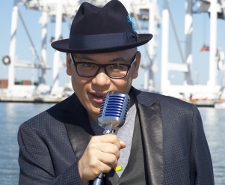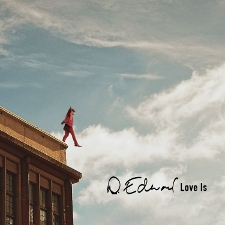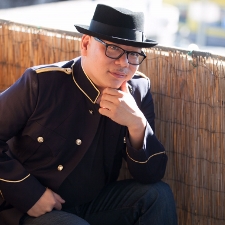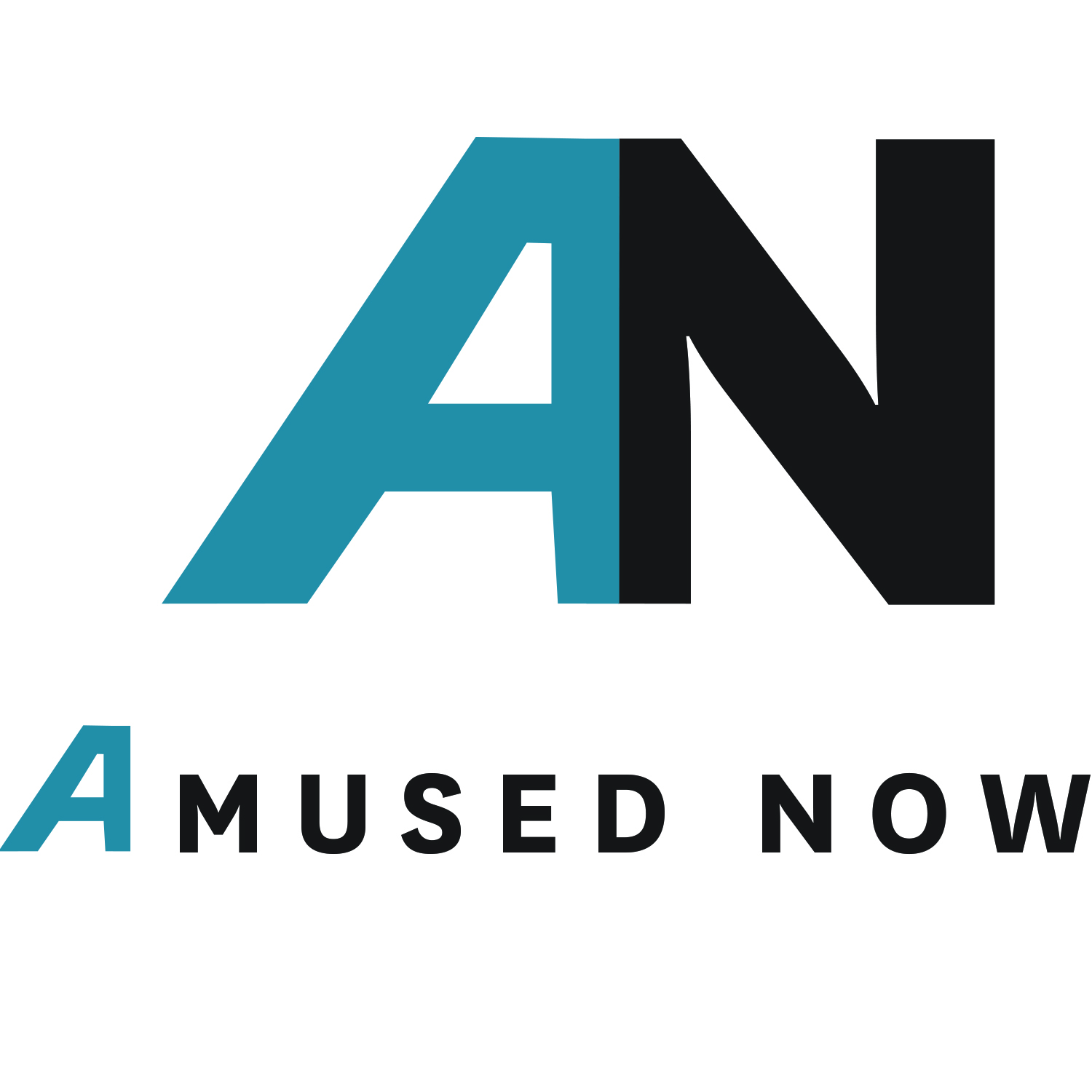
D. Edward
I became a professional musician 13 years ago. I had been in bands since high school and began songwriting around that same time. I knew friends who couch surfed or lived at home while honing their craft, and many of them ended up with a record deal or began touring the world with well-known acts. My route was different. I went to college, got a job and played and wrote music while supporting myself in the San Francisco Bay Area. I played with groups that had mild success locally and released several CDs over the years.
Although songs I co-wrote and played on were licensed and sold with mild success, a career in the music business at that point seemed elusive. I quit my job one day with the decision that I wouldn’t live my life with regret and started my new life as an artist.
I had no gigs booked and was out of touch with the Bay Area music scene, so I began networking and sitting in with bands for little money to find opportunities. It worked. Before long, I was playing percussion with a regular Top 40 cover gig at a small music venue. The drummer of the popular R&B and funk band Con Funk Shun happened to be subbing one weekend at the club and mentioned that he loved my attitude and playing. He referred me to his band, and soon I was offered a gig to play with them.
This was a group with seven gold and platinum albums back in the 70’s and 80’s, and I was suddenly touring with them, playing 20,000 seat venues. It was the opportunity that I had been looking for to launch myself into the professional level of the music business. On tour, I was meeting many of my idols, whose music I’d grown up on, as well as becoming friends with incredible musicians, who would later be my colleagues. I found a greater level of community and support than I had ever imagined. It was (and is still) a master class on touring and performing live.
Even with this amazing opportunity, I wanted to perform and record my own music. I’ve been a songwriter almost as long as I’ve been a musician. In middle school, I would write down the lyrics of songs I liked and heard on the radio. I kept them in a binder, which I think I still have. Songwriting has always been a calling for me. Although trying to make a living playing original music is far more challenging than playing in a corporate cover band or touring with a famous artist.
 Prior to my current album Love Is, I debuted my first commercial release as the lead singer of Little Red Box, essentially without a plan. I sent it off to CDBaby for distribution to online stores and streaming sites like Spotify, Pandora, and Rdio. Then, I started to promote it, not realizing that I was really 36 months too late. It’s a great album that I’m profoundly proud of, but my mistake was not creating that buzz before releasing the album, a mistake that I will never make again.
Prior to my current album Love Is, I debuted my first commercial release as the lead singer of Little Red Box, essentially without a plan. I sent it off to CDBaby for distribution to online stores and streaming sites like Spotify, Pandora, and Rdio. Then, I started to promote it, not realizing that I was really 36 months too late. It’s a great album that I’m profoundly proud of, but my mistake was not creating that buzz before releasing the album, a mistake that I will never make again.
A few years ago, I attended some music business seminars presented by my local chapter of the Recording Academy (NARAS), the organization that awards the Grammy. The seminars were called Music Business Night School (MBNS). One of the segments of the class was on publicity and strategy for releasing an album. I remember the speaker saying that one of the biggest mistakes you can make is releasing an album without a plan. And that’s exactly what I had done. To make sure Love Is did not suffer the same fate, I partnered with Independent Distribution Collective (IDC) who helped open the doors to a more advanced distribution strategy than companies like CDBaby and Tunecore (though those companies are great for small releases). IDC is my retail team. They connected me with publicity and social media professionals as well. The retail department set up an iTunes and Amazon preorders plan as well as Amazon promotions, which require a distributor to even be considered.
When I partnered with IDC, I told them I was looking to release in late October (this was in May or June), their response was: “Great! We’ll need physical CDs by August at the latest.” Yikes!!! I called my engineer, Michael Starita, and booked time to mix and finish recording at two studios (Jingletown Recording and Fantasy Studios) and we got to work. We worked 11 ten-hour days straight to get my CD ready for mastering. We had physical CDs in hand by the first week of August. Why did we need them that early? Promotion.
Strategy for an Album Release Campaign
At Least 3 Months Before Release
- 70/30 Rule for Promotion – We began rolling out the social media strategy I learned from the MBNS classes. 70% of the time, don’t sell anything. I personally like to check in with a “Hey” or affirmation each morning and engage in other discussions. Posting pictures and behind-the-scenes glimpses into the music making process are winners. The other 30% of the time I promote the new album! The concept of “sell, sell, sell” turns people off and the last thing you want is for fans to “mute” you.
- Online Branding – I used a consultant to tweak my online presence to get a cohesive look.
- Email Campaigns – I scheduled email campaigns offering exclusive content and pre-release access using a web-based email marketing service. I use MailChimp but there are other good services as well.
- Publicity – One of my publicists began sending out the album and press releases to music blogs, magazines, websites and writers. A few weeks later, reviews were being published creating anticipation for the release.
- Distribution – IDC sent CDs and the one-sheet to retail music buyers around the country.
2 Months Before Release
- Video Promos – I released a 5-minute and 1-minute promotional video on YouTube, where I talk about the making of the album and the album cover.
- Facebook Event – I started a Facebook event page inviting all of my friends to watch the music video for my first single and purchase the album.
1 Month Before Release
- Pre-orders – Pre-orders began on BandCamp for core fans.
2 Weeks Before Release
- Radio Play & Promotion – If your music is commercial or college radio friendly, it’s still the way to get your music heard. Internet radio is important too, but terrestrial radio should not be overlooked. I did interviews about the album and charted for the airplay from my first single off the album Love Is. Charts: BDS Most Added & SmoothJazz.com Top 50 Indie Chart.
- Preorders – iTunes and Amazon preorders began.
1 Week Before Release
- Countdown – I began counting down the days until the release using artwork from the album on social media.
- Music Video – I released a music video for the first self-titled single Love Is.
After Release
- Promo – The promotion doesn’t stop. New singles to radio, release shows to promote the album, exclusives to blogs and more reviews. I also hired another publicist to work different avenues to get the music out to the world.
 By the time the release date came, Love Is had over 30 reviews in blogs and print, international radio play and interviews. I was approached by a music supervisor and a European booker. It was nominated and won the Oakland Mayhem People’s Choice Award.
By the time the release date came, Love Is had over 30 reviews in blogs and print, international radio play and interviews. I was approached by a music supervisor and a European booker. It was nominated and won the Oakland Mayhem People’s Choice Award.
Recently, my video for Love Is premiered on Magic Johnson’s new Aspire TV Network and more positive tangible steps in my career continue to materialize into 2015, none of which would have been possible without the creation of a well-executed release strategy.
If there is one thing I would have done differently, it would have been to start the whole process even earlier: 6 to 9 months earlier with a crowdfunding campaign or private investors. I own my record label, which means I reap the rewards, but it also means I incur the expenses related to recording and releasing music.
What I’ve learned in those 13 years since I quit my job is that I’m an entrepreneur and, like any small business, it’s a constant hustle every day. Also, making good quality recordings and executing effective marketing campaigns cost money. You can do a lot of the work yourself, but having a great team makes all the difference. Work with the people that have experience at the level you want to achieve. Find your audience by putting your music in as many distribution channels as possible. Listen to the analytics. Numbers don’t lie.
I have to have several “irons in the fire” to keep the engine running and have learned to accept that constant change is necessary for the growth of my music. Stay positive and keep going.
 D. Edward
D. Edward
DEdwardMusic.com
@dedward007
Facebook
Google+

Great article D.!!!
Thanks for sharing your journey, Dale. I’ve read a lot of theory on album promotion, but you explain it in an easy to digest manner, and from experience. There are some useful ideas I’ll consider as I start my new album project.